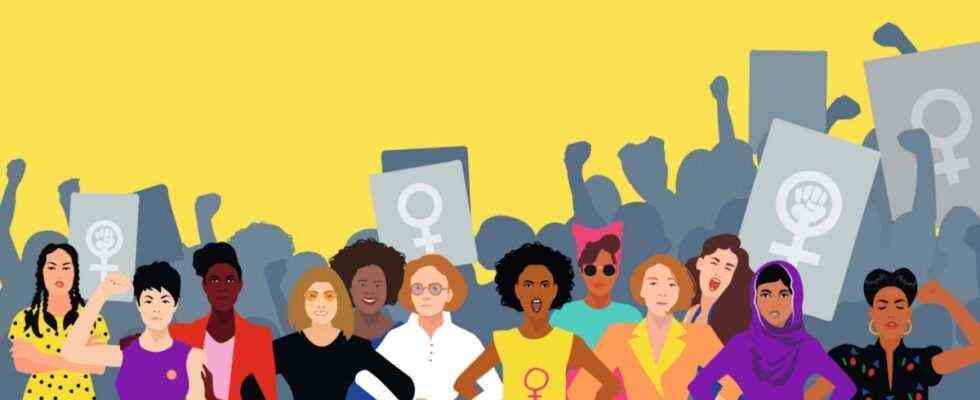After the parliament in Manitoba, Canada, rejected women’s suffrage in 1914, the Canadian suffragette Nellie McClung played parliament in the theater: a women’s government receives a men’s delegation who asks for the right to vote and is politely and protectively rejected. Nice men don’t vote. For heaven’s sake! Man was created for higher and holier things. Roaring laughter for the real government.
Nellie McClung’s speech, the rejection of male suffrage, which she spoke down from a stage, is in the young adult book “If Not Me, Who Then? Great Speeches by Great Women” by the American journalist Anna Russell. She has compiled all sorts of historical appearances in it, in often very abbreviated speeches and short biographical texts that precede them, from Marie Curie to the Pakistani education lawyer and Nobel Peace Prize laureate Malala Yousafzai, from the abolitionist Fanny Wright to the British MP Nancy Astor, who in was notorious in the 1920s for exchanging blows with Winston Churchill. When he once complained that he felt entering Parliament as if she had surprised him in the bathroom, where he didn’t even have a sponge to defend himself, she said he wasn’t handsome enough to be so worried. The two owed nothing to each other – some of the bon mots with which he was funny about her mouth are still in circulation today (to her “If you were my husband, I would poison your drink” he replied: “If I were your husband, I would drink it “.) Russell laments in her introduction that every generation of women repeats a ritual: There is still no equality, and the young women reproach the old women for this and really know very little about what they already have have fought. So Russell wants to give young girls a historical perspective, to recommend a bit of the history of feminism: You wouldn’t have to hold some debates for the third time, you would avoid some wrong paths if there were basic knowledge of the history of feminism. Russell’s collection of speeches wants to be a cornerstone – it introduces the staff who have driven the struggle for equality over the past two hundred years. Doesn’t harm boys either if you’ve heard of all these ladies before. It’s a nice collection of speeches that Russell has put together, with some classics alongside some that are about to become.
Julia Gillard, for example, is hardly known to us – she was Prime Minister of Australia from 2010 to 2013 and was there, you guessed it, the first head of government. In 2012 she stepped before parliament and gave a sophisticated speech that made headlines in English-speaking countries. The opposition leader had asked for the President of Parliament to be dismissed for slippery text messages. “If he wants to know,” she said, “what misogyny looks like in modern Australia, he doesn’t need a parliamentary motion, he just needs a mirror.”
However, even after reading these speeches, there will still be historical gaps that should be closed. Simone de Beauvoir is dealt with in just a few lines in the appendix; and Susan B. Anthony, of all people, who formulated the amendment to the American constitution that gave women the right to vote, did not find it in this book. But there is also something tremendously reassuring about that: at least the greatest heroines of feminism don’t all fit into one book. There are quite a few now.
Anna Russell Great speeches by great women. Translated from the English by Tracy J. Evans et al. With illustrations by Camila Pinheiro. Sieveking Verlag, Munich 2019. 176 pages, 22 euros.

